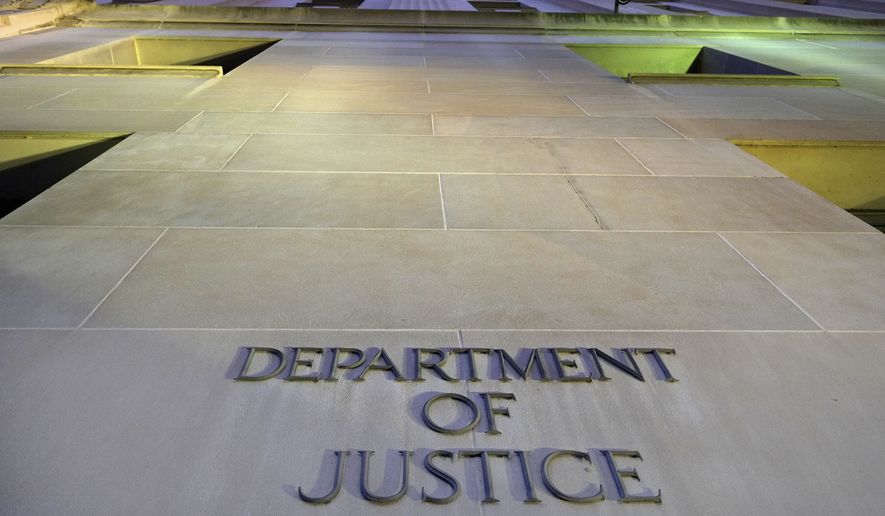The Justice Department is backing an American Indian tribe in its fight against a New Jersey township over the use of land for prayer and ceremonies, saying the Ramapough Mountain Indians’ religious liberty has been “chilled” by an overzealous zoning board.
Craig Carpenito, U.S. attorney for New Jersey, said the Religious Land Use and Institutionalized Persons Act of 2000 (RLUIPA) applies in the Ramapough’s lawsuit against the township of Mahwah, about 31 miles north of Newark.
“RLUIPA protects the rights of all religious communities to worship on their land free from discriminatory barriers and unlawful burdens,” Mr. Carpenito said in an email. “Our office will continue to vigorously enforce the rights guaranteed by RLUIPA and take steps to ensure that it is applied correctly in our district.”
The Ramapough have lived and prayed in the highlands northwest of Manhattan for centuries — and offered shelter to Gen. George Washington and his Continental Army during the winter of 1779.
In 2017, Mahwah administrative officials ruled that the tribe could no longer use the parcel of land at the mouth of the Ramapo River near an enclave of a wealthy homeowners. Though the tribe owns the land, it did not have a permit for a prayer assembly, stone altar and prayer circle, the officials said.
The Ramapough filed a lawsuit against the township and the homeowners association in May, arguing under the RLUIPA that they have the right to practice their traditional religion, which is rooted in the land they own. The tribe calls the area the Split Rock Sweetwater Prayer Camp.
The Justice Department announced Monday it was filing a statement of interest in the case, following months of courthouse back-and-forth over legal technicalities, including whether the tribe — which is not recognized by the Bureau of Indian Affairs — has standing to sue.
Under President Trump, the Justice Department has sought to strongly support religious liberty cases. In January, acting-Attorney General Matthew G. Whitaker touted the department’s recent record on religious liberty, including 10 convictions in cases involving attacks on or threats against houses of worship and individuals based on religion.
Attorneys for Mahwah and the housing association have argued in court documents that the Ramapough do not have unfettered access to the public land because it is not zoned for cultural assembly.
The township had given approval for construction of a longhouse on the property in 2012, but attorneys now say that permit was granted “erroneously” by a former zoning official.
Since the permit was revoked in 2017, the tribe has incurred more than $1 million in fines for misuse of the land, including holding large assemblies there and erecting structures such as a sweat lodge and poles around a prayer circle.
“Any claim for deprivation of constitutional rights based upon the issuance of summons are not ripe,” attorneys for the Ramapough Hunt & Polo Club said in a court filing last fall, arguing that the tribe has not followed the proper channels for permits and appeals under state law.
Attorneys also question whether there is a substantial burden on the Ramapough’s religious beliefs.
“For a substantial burden to arise, adherents must be prevented from conducting or expressing their religious beliefs,” attorneys for the homeowners association said, noting that 18 other zoning districts allow for religious assembly.
In the statement of interest, Justice Department attorneys point to the tribe’s claim that Sweetwater is one of the few ceremonial cites remaining to the Ramapough after years of “historic dispossession, discrimination, and marginalization.”
That the township allows for recreational uses of the area — including horseback riding and hiking — but fines tribal members when more than two are gathered in prayer amounts to selective enforcement of zoning code and a constitutional violation, Justice attorneys argue.
Mahwah “has taken civil and criminal enforcement action against the Ramapough, which has chilled its religious worships,” Justice said in its statement.
The Ramapough is not one of the 573 federally recognized tribes, but it is recognized by the state of New Jersey. It has about 3,500 members.
• Christopher Vondracek can be reached at cvondracek@washingtontimes.com.




Please read our comment policy before commenting.